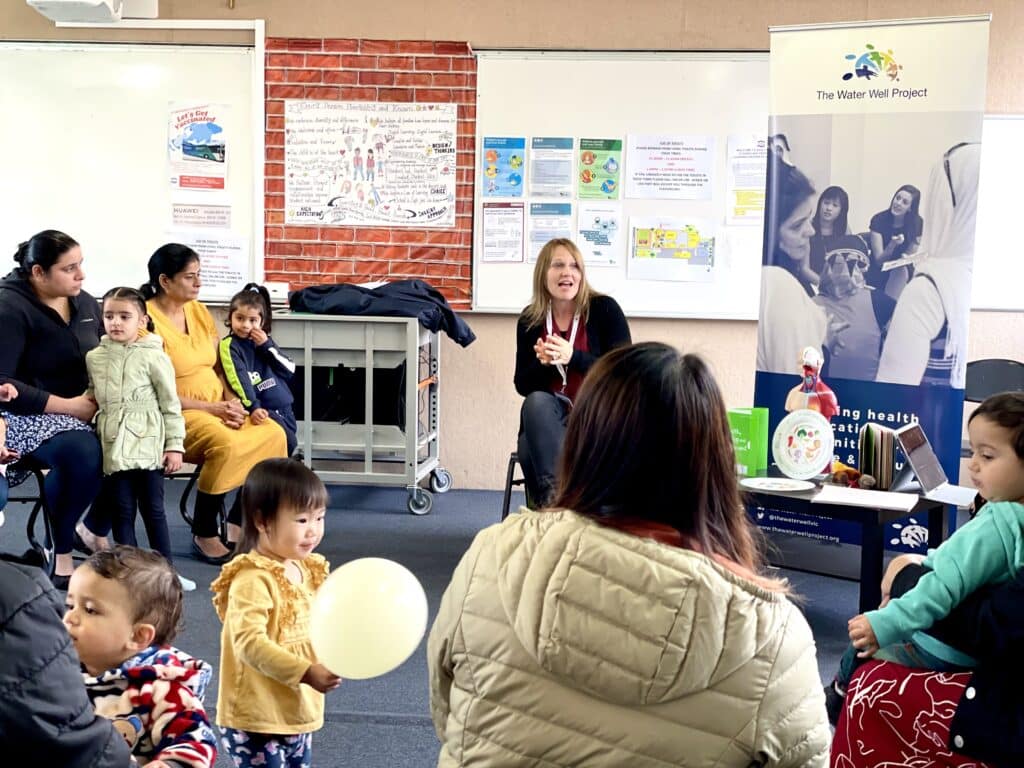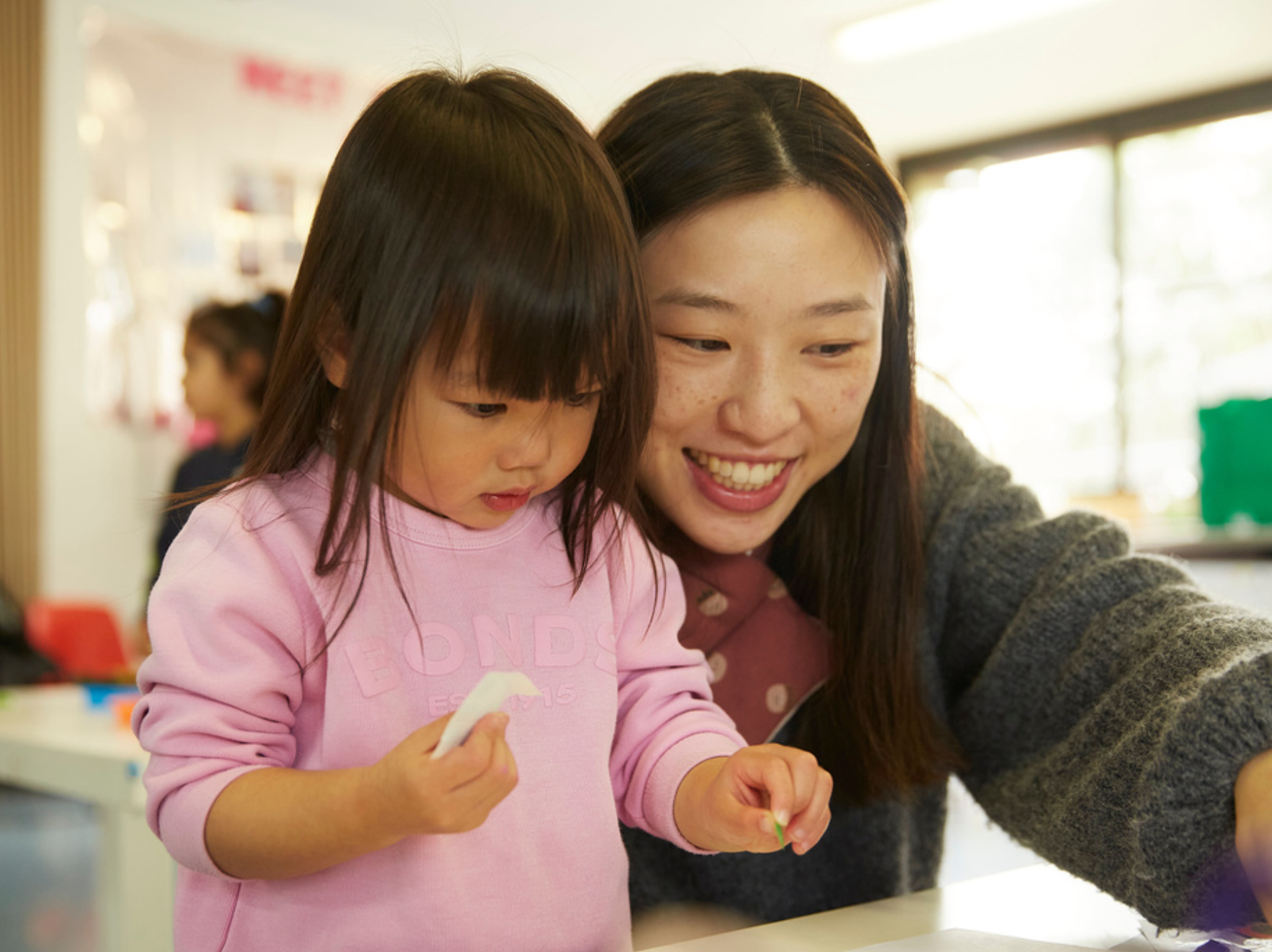Project Name: Improving refugee and asylum seeker women and girls’ health literacy
Received: $49,592 from a total project cost of $99,400
100 Women funds will cover the costs of coordinating and onboarding volunteer doctors and health educators and conduct an impact evaluation for the project.
Who is the organisation and what is their mission?
In traditional communities, a river, water pump or water well is used to signify a place where people congregate to gather water and share stories, knowledge and experience. The Water Well Project is an organisation that creates spaces where healthcare professionals and other
groups can exchange practical and culturally safe information with migrants, refugees and asylum seekers. They offer free, interactive, and culturally responsive health education sessions that are designed to overcome gender-related barriers to healthcare information and ultimately improve the wellbeing of these communities.

What is the project that the 100 Women grant will support?
This project will include the delivery of 50 free health education sessions for women and girls from migrant, refugee and asylum seeker communities in Victoria, Tasmania, New South Wales and South Australia. The sessions will be facilitated by registered volunteer healthcare professionals and will cover topics including sexual and reproductive health, pregnancy and postnatal wellbeing, child health and development, and how to maintain healthy relationships.
Who is the project for? Who else will benefit?
With around 15 participants per session there will be more than 700 women and girls positively impacted by this project. Approximately 75% of these will be adult mothers, and 25% will be children, youth and seniors. The knowledge shared in these sessions is expected to have positive secondary impacts for the families and friends of the project participants.
Why is the project needed?
Australians from migrant, refugee and asylum seeker backgrounds often report lower levels of health literacy than other Australians due to language barriers, different cultural understandings of health and disease and the challenges of navigating an unfamiliar healthcare system. This translates to poorer health outcomes and decreased utilisation of preventative health services. Women and girls in these communities are often further impacted by gender-related barriers such as the expectation to adhere to traditional gender roles, often resulting in a lack of access to education and employment.
What are the planned outcomes for the project?
This project will give participants:
- Improved knowledge and confidence in how to access health care support; and
- Improved ability to manage their own health outcomes and those they care for.


